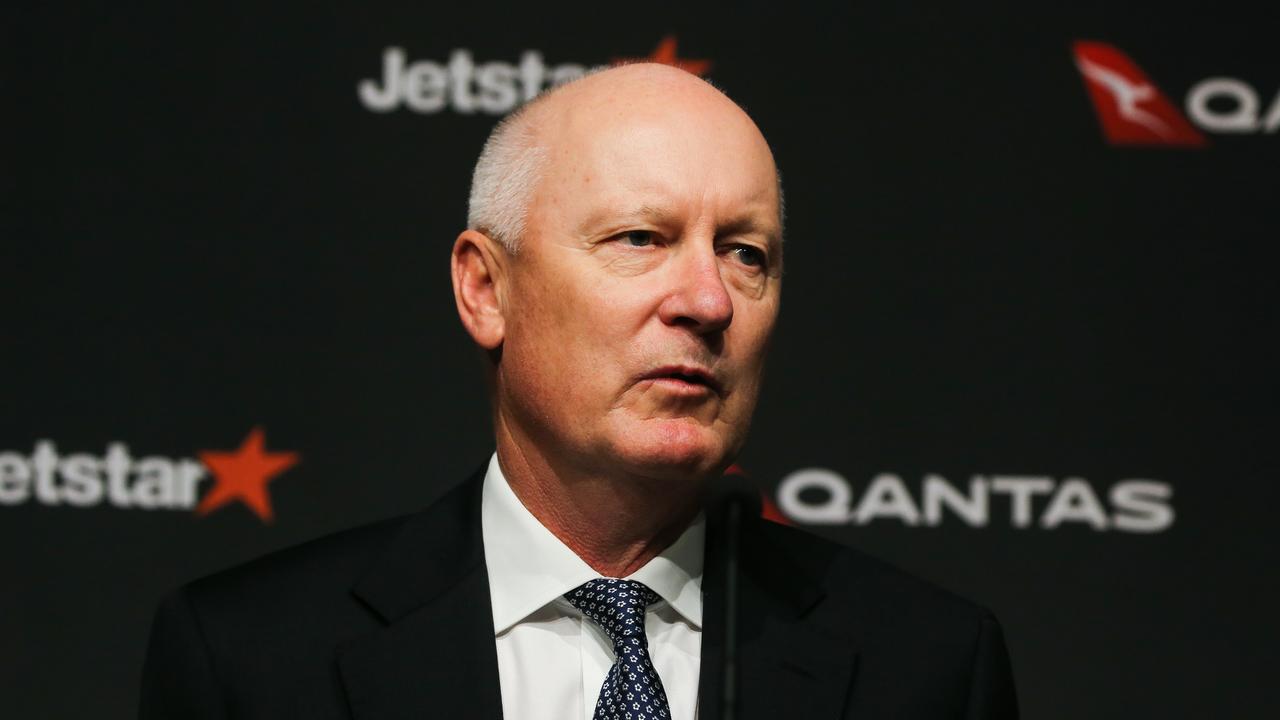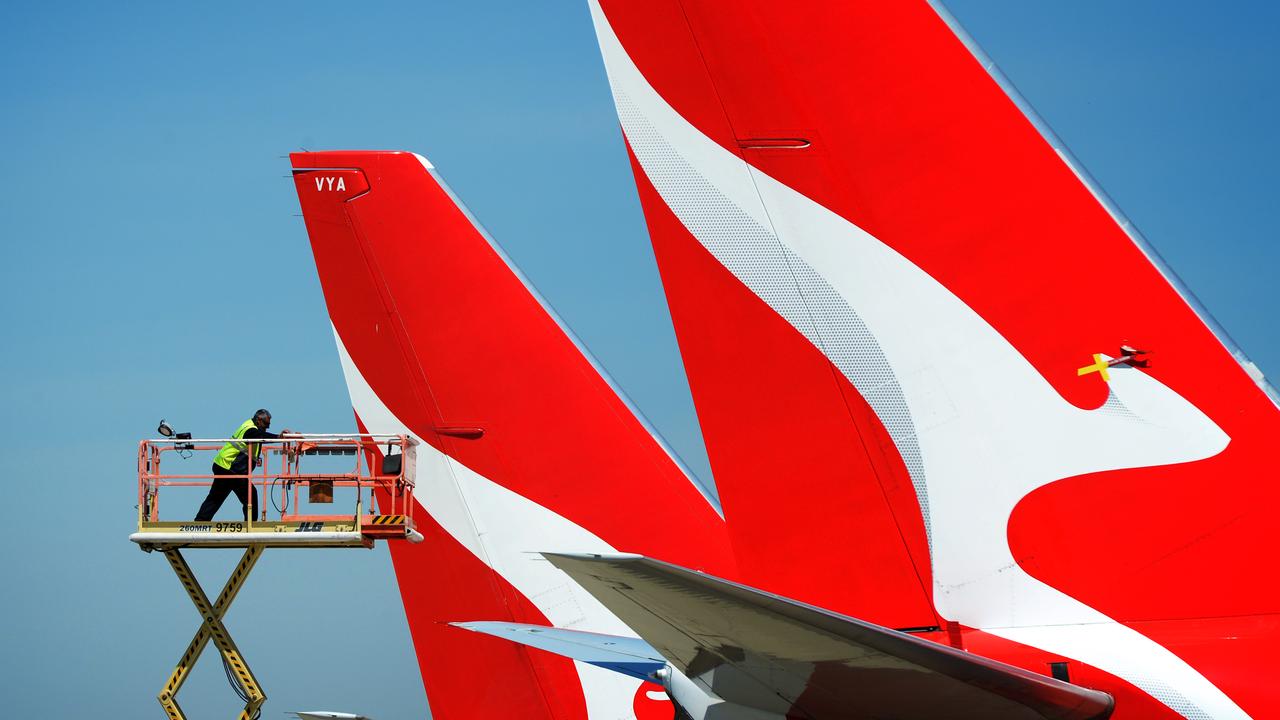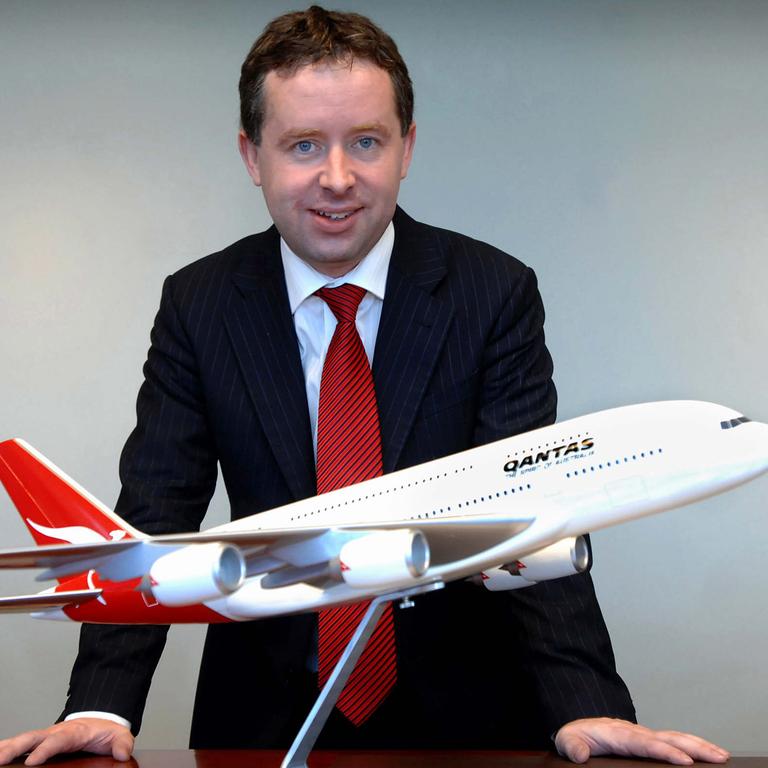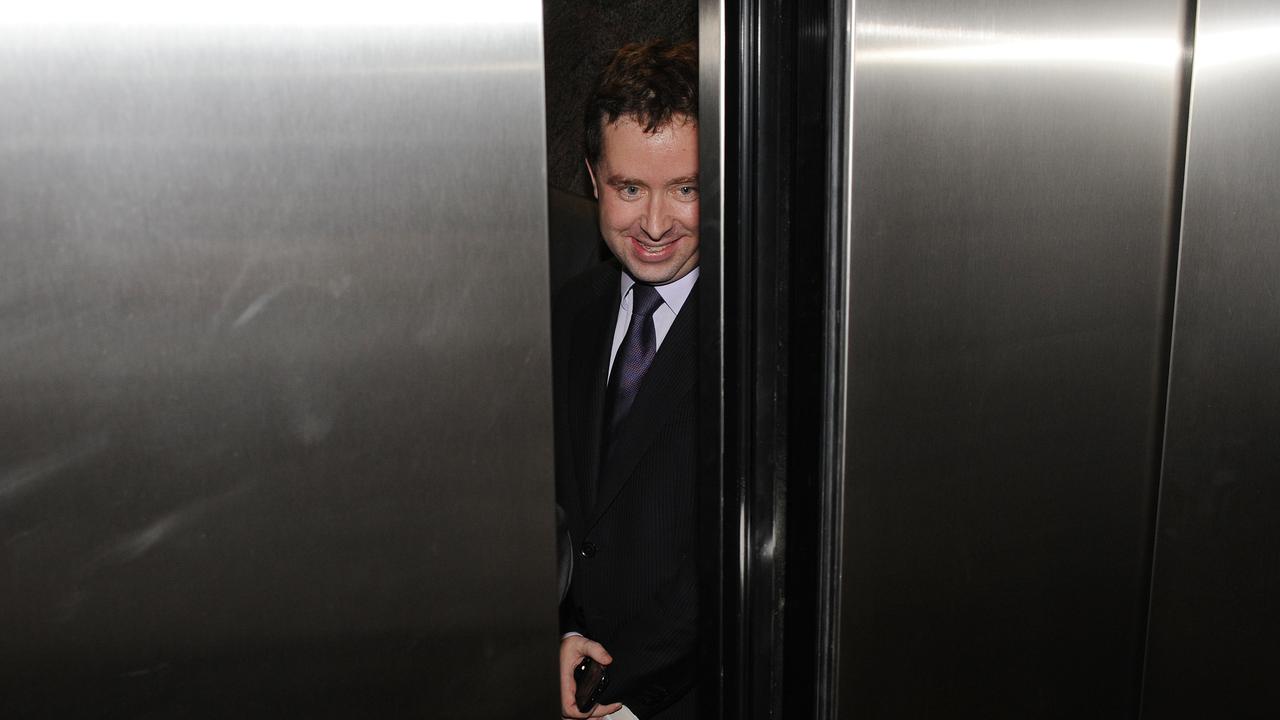Mayday, mayday: Why Alan Joyce had to leave as Qantas CEO
Airlines live or die on trust, and an explosive legal action represented the final straw in Qantas’ cascading brand damage.
The compounding reputational hits and loss of trust with the Qantas brand meant that even after 15 years, Alan Joyce didn’t get to fully control the timing of his exit.
The pugnacious chief executive has finally stopped fighting and accepted the airline needed a circuit breaker to reset. And that needed to be him. Joyce issued his retirement – two months earlier than planned – at a board meeting on Monday night.
Now the focus will move to chairman Richard Goyder who will need to explain to big investors and customers the steps underway to reset the airline, or pressure will quickly rise for him to be next.

Goyder says in an interview he has no intention of going anywhere.
“I’m fully committed. We’ll get to work and do what we need to do and I think my role in that is pretty important”. Goyder was re-elected as chairman last November and intends to deliver continuity through the transition to new chief executive Vanessa Hudson.
Goyder emphasises the decision to leave early was Joyce’s and it was made for the “right reasons”.
The move gives Hudson some “clear air and is the right thing to do in the interest of the airline”.
However the explosive ACCC legal action filed last week represented the final straw of the cascading brand damage coming out of the Covid-19 crisis. This was Joyce’s undoing and prevented him from going out on a high at the November AGM.
Joyce’s tough leadership has delivered again and again for the airline’s investors, but it has been at the long-term expense of customers and reputation. The ACCC action has also unearthed worrying signs around governance.
After a rocky post-pandemic recovery marked by delays, lost luggage and cancellations that were all out of synch with skyrocketing fares, Qantas has of late moved into the danger zone of becoming a political football.
The airline is regarded as being too cosy with power and this gives it protections others don’t have. The Albanese government’s captain call in blocking rival Qatar Airways’ bid for more flights into Australia had all the optics of political backroom deal. Indeed, former treasurer Peter Costello recently made the extraordinary claim that Qantas is “one of the most powerful players in Canberra”. Joyce has previously denied played a role in the decision.

But allegations made by the ACCC that Qantas was selling airfares for flights it had already cancelled were so serious they demanded a proportional response.
Even before Qantas has addressed the allegations, the bigger issue is the stench around the legal action means customers, regulators, investors or indeed anyone that does business with Qantas will have issues around trust. For a retail brand as big as Qantas, that is unacceptable.

Even Joyce has finally accepted that to stay on and fight for another two months would be futile and certainly cause further damage to the airline.
Chairman Goyder, also the AFL chair, known for his ultra-methodical approach to business, had little choice but to have a series of discussions with his chief executive over the weekend.
Joyce, whose first instinct during his career has been to fight, accepted he had to move on a path of an early exit. The decision was ultimately Joyce’s but Goyder played a role in the talks.
With Goyder also taking regular soundings from shareholders ahead of the annual meeting, there is a real risk the board could face a backlash around the remuneration report. That would be a message from big investors demanding change in the way the airline is run.
Goyder confirmed there are provisions for clawbacks of bonus payments if management lets shareholders down.
“One of the reasons Qantas’ remuneration has been strongly supported by shareholders is it’s very transparent how it works. And secondly, there’s been very close alignment between outcomes for executives and outcomes for shareholders”.
On the ACCC action Goyder says Qantas is still reviewing the allegations but is co-operating with the competition regulator. “Where we’ve made mistakes, we’ll face into them,” he says.
As successor Vanessa Hudson takes charge of Qantas from Wednesday, focus will now shift to her efforts to rebuild trust.
Unlike an outsider for a CEO, the veteran Qantas executive will need to quickly show that she is not bringing Joyce’s same cultural settings to the table. Customers and shareholders will rightly ask her what has really changed.
Goyder points to Hudson’s role in keeping the airline financially alive during the forced groundings of Covid. This ranged from negotiations with suppliers and raising funds from investors.
“Vanessa will be the right person,” Goyder says, adding her work through Covid was “exceptional”.
There is precedent with Matt Comyn, a long-term Commonwealth Bank insider, taking over from ousted chief executive Ian Narev after that lender was hit with massive brand damage due to a money laundering scandal in 2017. Ever since, Comyn has successfully worked to get the balance right in rebuild the reputation of the bank and win over customers while also delivering for shareholders.
There were small but significant signs of a Qantas reset in a statement released this week in response to the ACCC’s legal action.
While it was still going through the legal issues of the ACCC court action, the Qantas statement acknowledged reputational damage and the airline had pledged to win back trust.
“We know it will take time to repair. And we are absolutely determined to do that,” the airline. Significantly, Joyce’s name was not attached to the Qantas statement.
The next pressure point would have erupted later this week with the scheduled release of Qantas’ annual report and this would show the extent of more than $10m of share-based payments flowing to Joyce as a result of deferred remuneration through Covid.
It would also show the executive team has been marked down based on the poor customer rankings over the past year. The release of the annual report will now be pushed back for at least a week to reflect the management changes.
Legacy
Looking through the tarnished end to Joyce’s long career, its important to ask what kind of legacy the unlikely Irish-Australian airline boss has left after 15 years running Qantas.
Investors found out early during Joyce’s tenure he was in their corner. This ranged from being prepared to take on unions with the unprecedented grounding of the Qantas fleet to aggressively hacking away at Qantas’ bloated cost base. Some campaigns have ended in court fights but Joyce has rarely taken a step back, including fighting transport unions all the way to the High Court.
While the Covid-19 pandemic was life or death fight for Qantas’ survival, it was also a once-in-a-generation chance to rebuild the airline from the ground up with the axing of thousands of staff.
This restructure now delivering financial returns that helped underpin the recent $2.47bn turnaround in annual profit. The balance sheet is now the strongest it has been for years with debt as low levels.
In the high-risk world of aviation where airlines burn profits like fuel, earnings sustainability is important in order to hire and train more staff for well paying jobs, invest in aircraft and keep flying safe.
Qantas now has the biggest order book in front of it as part of a major fleet renewal that covers ultra-long distance aircraft as well as domestic workhorses. Qantas’ committed delivery order book is now up to 133 aircraft over the next five years with a capex program pushing nearly $10bn.
All along though there has been unease that the investor returns have come at the cost of customers. At the same time at 15 years it is too long for any CEO to run a ASX-listed company. The ACCC’s allegations show hubris has set in with Qantas’ corporate culture in need of a reset.
And while Qantas can sustain its dominance against the smaller Virgin in a two airline domestic battle, passengers have far more choice at an international levels.
In a short farewell note to staff Joyce nominated the creation of Jetstar from scratch to opening up of new routes with Qantas International as key achievements. He also paid tribute to the “thousands of professionals” that stand behind the brand.
Goyder acknowledges Joyce can be “polarising” but has delivered for the airline.
“I would say within the business and certainly shareholders and indeed the board and more broadly in a community he is highly respected for the person that he is and the job he’s done”.
johnstone@theaustralian.com.au
More Coverage

Originally published as Mayday, mayday: Why Alan Joyce had to leave as Qantas CEO





